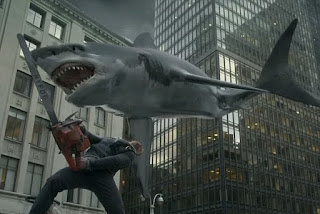 |
| Exhibit A |
In many cases, those bare bones plot movies are more beloved and iconic not in spite of their lack of narrative depth but because of it. How many times has Tim Burton ever blown your mind with his storyline? But you remember his visuals and his style. If you have ever known a girl between the ages of 13 and 16 who fancied herself "dark," then you have seen her express all her notions of love and romance by celebrating Jack and Sally. Recall Avatar, which had its plot lifted directly from Dances With Wolves, but left some people depressed, suicidal, and feeling that they were living in a colorless world because Pandora was so beautiful.
In other cases, even movies have have intricate plots oftentimes have their plots ignored for the sake of their iconic pictures. In Fight Club we learn that an emotionally constipated man with insomnia and an abandonment complex created an anti-consumerist, violent, destructive alter-ego for himself who was everything he couldn't be - and then in the course of the story he realizes that he was a deeply sick and unhealthy person who really just needed to let himself learn to love another person. In other words, according to the plot Tyler Durden is an extreme example of what happens when men who resent being abandoned by their fathers turn their rage on themselves and their world instead of growing up. How is this expressed in our imagery and icons?
 |
| We express it by making him a sage, of course |
Media is now consumed on demand. We have more control than ever on what media we consume and the timeframe in which we do it. Further, we have more capability than ever before to generate our own media, particularly through YouTube. In the domain of comedy it has always been understood that plot was subordinate to situation: funny always triumphed over coherence. We have seen this reflected in the explosion of sketches, of varying quality, that litter the internet.
How long will it be before it is accepted that the same principal can apply beyond humor?
It is difficult to produce a full and complete narrative, especially for an amateur, but it is completely possible to pour one's heart and soul into a single situation. Why is it that we suppose that this is only appropriate if the situation is meant to be funny? Would it be possible to create a microstory where the payoff is the satisfaction of vengeance? Or the brokenness of a unrequited romance? Or righteous indignation at some offense?
Various pay-offs require more elaborate set-ups, however it seems to be me that it is perfectly within the realm of possibility to expand the domain of microstories to payoffs other than humor. It also seems to me that it is economically inevitable that, due to the over saturation of people trying to be funny on the internet, people will begin experimenting more and more with microstories that offer alternative emotional payoffs. Eventually a few formulas will be found that work.
Or at least one can hope.
No comments:
Post a Comment